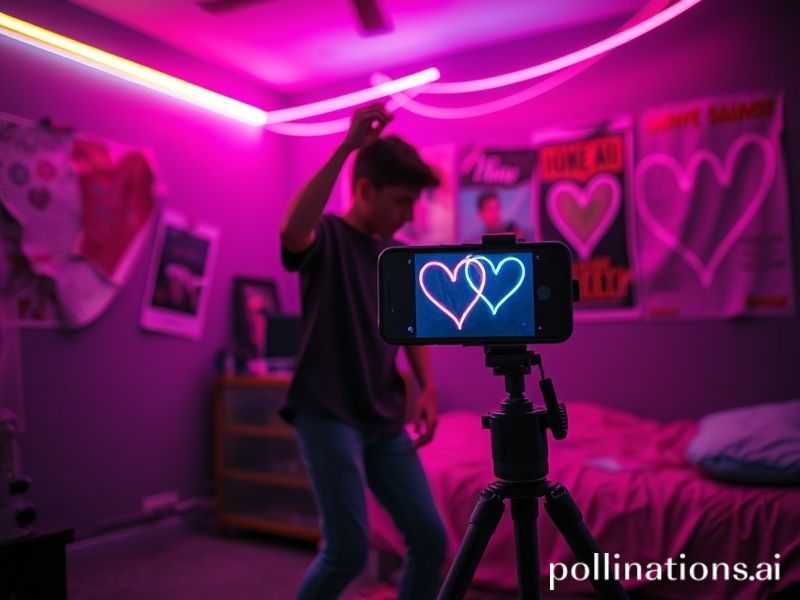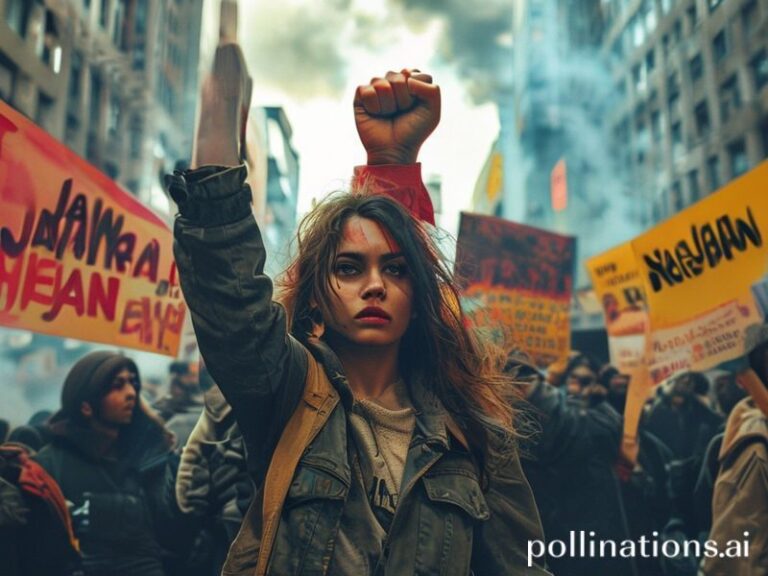ByteDance Over Troubled Waters: How TikTok Became the World’s Accidental Superpower
Global Affairs Desk, Dave’s Locker – Somewhere between a Berlin co-working loft and a Jakarta food-court Wi-Fi hotspot
If the Cold War was fought with missiles and manifestos, the TikTok War is being fought with lip-syncs and lo-fi filter presets. From the marble lobbies of Brussels to the humid back rooms of Manila’s influencer incubators, the 60-second vertical video app has become the de-facto operating system for the planet’s collective attention span. Call it the Marshall Plan for mass distraction: the United States frets about data exfiltration, the EU drafts another acronym-stuffed regulation (hello, DSA, DMA, GDPR-2: Tokyo Drift), and India has already opted for the geopolitical equivalent of a hard block-and-delete. Meanwhile, 1.2 billion thumbs keep scrolling in 150 other countries where the app is still welcome, convinced that the real enemy is boredom, not Beijing.
In Jakarta, government ministers recently held a “TikTok diplomacy” workshop where they practiced pointing at invisible text bubbles while wearing batik shirts—because nothing says soft power like coordinated hand gestures. Across the Sahel, French NGOs complain that 15-second clips of Sudanese dabke dances now outrank their carefully color-graded documentaries about water security. The French, of course, pioneered cinematic art so that future generations could ignore it for videos of teenagers juggling mangoes. C’est la démocratie.
Europe’s response has been characteristically continental: a 28-page “risk assessment” that reads like Proust ghost-writing a user manual. The document warns that “algorithmic opacity may undermine the informational autonomy of minors,” which is Brussels-speak for “your 12-year-old now trusts a dancing cosmetologist more than the nightly news.” Fines have been threatened, hearings scheduled, and exactly zero phones have been switched off. In a continent that once tore itself apart over transubstantiation, the idea of regulating a filter that gives you puppy ears is oddly reassuring. Schrödinger’s bureaucracy: simultaneously fierce and futile.
Then there is the United States, where TikTok has become the bipartisan chew toy. Republicans fret it’s a “digital fentanyl” pumped straight into the veins of Real America; Democrats worry it’s a surveillance piñata for Xi Jinping’s birthday party. Congress has considered everything from forced divestiture to an outright ban, but the moment lawmakers realize their own interns run their campaign accounts on the same app, the outrage curve plummets faster than a crypto portfolio. Last month a senator from a state that shall remain nameless (rhymes with Schmexas) posted a TikTok of himself grilling brisket to “prove” he’s tough on China. The video got 4.2 million likes and precisely zero policy concessions.
South of the equator, Brazil’s favelas have turned TikTok into a micro-economy: funk dancers monetize pirouettes, while local gangs reportedly use livestreams to negotiate truces—think UN peacekeeping, but with better lighting. In Lagos, creators are crowdsourcing bail funds by doing the “crate challenge” with actual court documents taped to the boxes. Satire is redundant when reality performs its own stand-up routine.
And yet, beneath the carnival lurks the old imperial arithmetic. Whoever owns the feed owns the future, and ByteDance is simply faster at colonialism than the East India Company ever was—no gunboats required, just push notifications. Data is the new opium, and we’re all 19th-century China, scrolling ourselves into concession ports of the mind.
So what does it all mean? The planet has elected a single, shimmering interface to mediate desire, anxiety, commerce, and revolt. Governments will keep drafting memos, parents will keep wringing hands, and somewhere in a Moldovan basement a 14-year-old is learning to moonwalk well enough to pay his family’s heating bill. The algorithm doesn’t care about your passport; it only cares if you watch to the end. And we always do.
In the end, TikTok is neither savior nor saboteur. It’s a mirror with built-in ring light, reflecting a world that would rather be seen than saved. Smile—someone, somewhere, is already remixing your existential dread into a sea-shanty dance challenge.







